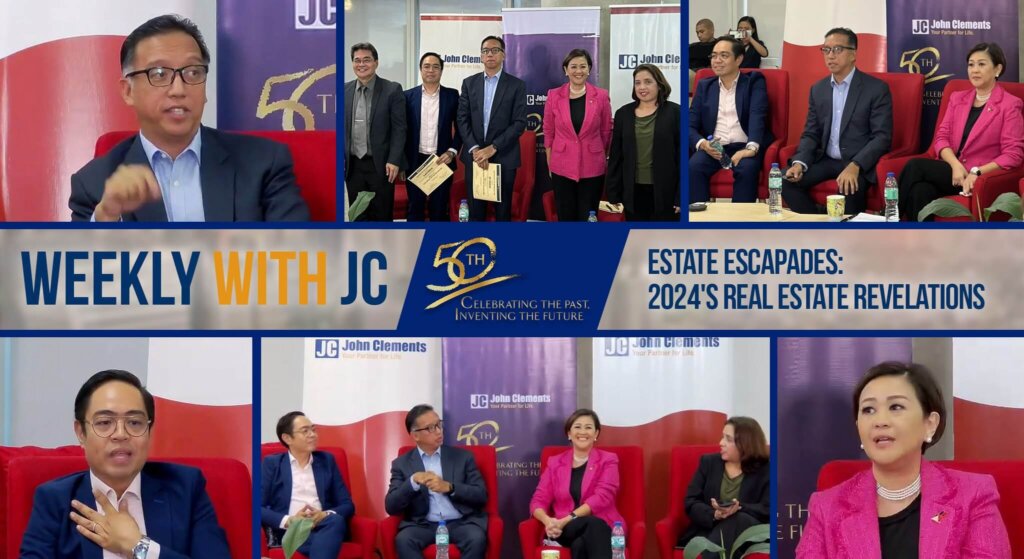Before joining the esteemed ranks of JCCI, I was part of one of the biggest real estate players in the industry, both before and during the pandemic. During the height of the pandemic between 2020 and 2021, I was exposed to the challenges of the company concerning big construction activities that were halted or delayed due to lockdowns, restrictions on movement, and disruptions in the supply chain. This led to multiple, if not all, delays in the completion of projects and the launch of new developments.
That being said, the real estate industry in the Philippines now is quite different. It is a dynamic and rapidly evolving sector that plays a pivotal role in the country’s economic growth and development. With our current population of 118.2 million people and a burgeoning middle class, the demand for residential, commercial, and industrial properties continues to rise, driven by urbanization, population growth, and a robust business environment.
Is Real Estate in Demand in the Philippines?
Joey Radovan, our industry expert and leader, shared his thoughts on this at the recently concluded Weekly with JC last week, which was also graced by equally accomplished industry leaders Monique Pronove and Claro Cordero. Given that we have barely gotten out of the challenging years brought on by the pandemic, the economic uncertainty and job losses during that time resulted in reduced purchasing power among Filipino and foreign businesses and consumers.
But in the recent years that followed, the Philippines’ real estate market has experienced steady growth, fueled by factors such as low interest rates, increasing foreign investment, and government infrastructure projects aimed at improving connectivity and accessibility across the archipelago. Major urban centers like Metro Manila, Cebu, and Davao have witnessed significant expansion, leading to a surge in property development, particularly in mixed-use developments, condominiums, and office spaces.
Based on the market data that Joey Radovan shared with us, the residential segment remains a key driver of the real estate market, with a growing demand for affordable housing solutions, condominium units, and townhouses. This is largely attributed to changing demographics, rising incomes, and the aspiration for modern and convenient living spaces among Filipinos.
Furthermore, the commercial real estate sector is experiencing notable growth even after all that has happened, driven by the expansion of business process outsourcing (BPO) companies, retail chains, and multinational corporations. This has led to increased demand for office spaces, retail centers, and industrial facilities, particularly in prime locations within major cities and economic zones. Given that we have yet to see a return from pre-pandemic occupancy numbers, the market still sees itself to be optimistic, and why not?
Why Real Estate is the Best Investment in the Philippines
In addition to domestic demand, the Philippine real estate market is also attracting significant interest from foreign investors, drawn by the country’s favorable economic fundamentals, strategic location, and potential for high returns on investment. And it’s not just from POGO investments/investors.
Given the previous market volatility and economic uncertainty brought about by the now almost non-existent pandemic, the country’s real estate stakeholders have adopted a proactive approach by diversifying their portfolios and modifying their business models. Suffice to say, it was a learning experience that they have genuinely learned greatly from. In response to these challenges, industry stakeholders, including developers, government agencies, and financial institutions, are continually exploring innovative solutions and strategies to sustain growth, enhance market resilience, and ensure long-term sustainability in the Philippines’ real estate sector.
Overall, the real estate industry in the Philippines still faces challenges, but it also presents opportunities for growth and innovation. Adaptation to changing market conditions, leveraging technology, and addressing evolving consumer preferences will be key for industry players to thrive in the current landscape.
Millennials, for instance, are a key factor moving forward. Being the new governing demographic in the business sector as they now have 40 percent of the working class, they will figure in the key investments of the real estate industry moving forward. Millennials in the country are reshaping the real estate landscape with their preferences, behaviors, and investment strategies. They prioritize convenience, sustainability, and technology-driven solutions when buying or investing in properties. With a keen interest in condominium living, digital platforms, and diverse investment opportunities, they are actively seeking homes and assets that align with their lifestyle and financial goals. Their involvement presents opportunities for developers, agents, and financial institutions to innovate and cater to the evolving needs of this dynamic demographic, driving growth and diversity in the real estate market. This is part of the driving force that speaks volumes in what Mr. Radovan and even Ms. Pronove have shared with us that day.

A Positive Momentum in Philippine Real Estate
In conclusion, the active involvement of the next generation, coupled with the interests of foreign investors and the resilience of local businesses, presents a promising outlook for the real estate industry in the Philippines.
Our future successors’ preferences for convenience, sustainability, and technology-driven solutions are not only driving innovation but also creating new opportunities for growth and development. The influx of foreign investment and the steady resilience of local businesses further contribute to the industry’s vitality. As these diverse stakeholders continue to shape the real estate landscape in the Philippines, there is a positive momentum toward sustainable growth, increased market dynamism, and enhanced value creation. By embracing innovation and catering to the evolving needs of stakeholders, the real estate industry is poised to thrive more and more, and still contribute significantly to economic prosperity and societal well-being.
Stay up to date with our informative and insightful industry briefings and visit our Weekly With JC page today for details.




